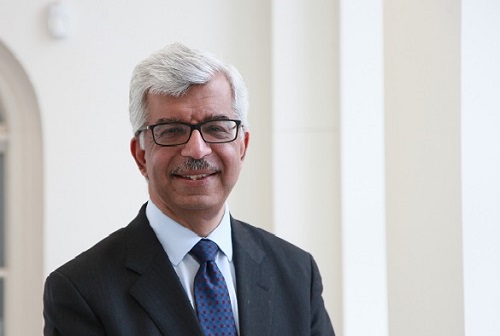University Professor to lead £2.5m project to improve kidney health in people living with heart failure

Almost a million people in the UK live with heart failure, most of whom also have kidney problems. The heart and kidneys strongly affect each other. If the heart suddenly works less well, kidney function can worsen. Modern treatments help people with heart failure to live longer, healthier lives but the amount and type of their medication need to be checked regularly. Too low a dose of heart medication makes heart failure symptoms worse. Higher doses of heart medication can make kidney function worse. Either can lead to hospitalization and increase the risk of death.
At present, the frequency of blood tests to measure kidney function varies widely between GPs. If tests are not frequent enough, worsening in kidney function might not be detected early, risking hospitalisation. On the other hand, testing too frequently means unnecessary visits to the GP, which adds an extra burden to people living with heart failure and wastes NHS resources. Individuals respond differently to changes in medicines and there is currently no way to determine the best frequency of kidney blood tests for each person.
Prediction technology
Professor Sir Munir Pirmohamed is leading work to develop technology to predict how often each person with heart failure needs a kidney blood test. The project will be delivered by researchers from the University of Liverpool, Liverpool University Hospitals NHS Foundation Trust, University of Manchester, Bangor University, Liverpool Heart and Chest Hospital and the Clinical Practice Research Datalink provided by the Medicines and Healthcare products Regulatory Agency, together with a Patient and Public Involvement team of people living with heart failure. The project arose from work that was initially funded by North West Coast NIHR ARC (Applied Research Collaboration, previously known as CLAHRC).
The team will use medical records to predict how an individual’s kidney function will change over time. This information will be used to create alerts for GPs and nurses indicating when a person living with heart failure needs a kidney function test. The team will also develop expert advice on how to adjust medicine dose and/or type to keep both the heart and kidneys working together at their best. Further work will be conducted with doctors and nurses to ensure that the advice/alerts are user friendly.
Invaluable help from people living with heart failure
Professor Sir Munir Pirmohamed, David Weatherall Chair of Medicine at the University of Liverpool, said: “Once again, this successful funding application highlights the strengths of clinical research and the NHS-University partnerships in Liverpool. It also highlights the strength of our national collaborations with other Universities and with the MHRA.
“With the expertise of our research team and the invaluable help of our participants who live with heart failure we can turn this research into tomorrow’s healthcare. I am delighted that this funding will enable us to progress research aiming to further improve quality and length of life for people living with heart failure.”
Innovative collaborative research
Dr Mark Devonald, Consultant Nephrologist at Liverpool University Hospitals NHS Foundation Trust, will be closely involved in the research. Dr Devonald said: “This substantial NIHR funding provides an exciting opportunity for innovative collaborative research. The technology developed within this project should improve the wellbeing of our patients with heart and kidney disease, as well as making more efficient use of NHS resources.”
The funding for the research (£2,523,682.00) was awarded by the NIHR through the Programme Grants for Applied Research scheme.





















